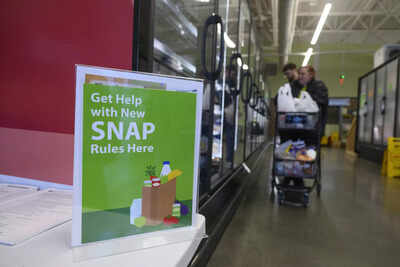ARTICLE AD BOX

As the federal government shutdown extends beyond five weeks, the impact on Cambridge families is growing more visible — particularly among households with school-age children.
With delays and cuts to the Supplemental Nutrition Assistance Program (SNAP), many parents are struggling to keep food on the table, forcing local food pantries to step up their outreach.According to The Harvard Crimson, Cambridge’s food assistance centers have seen a steep rise in visitors since the shutdown began, including many families who had never before needed support. For schools in the area, this surge is more than a food issue — it’s an educational one.
Hunger and instability at home often translate to lower classroom attendance, reduced concentration, and emotional stress among students.
Schools and pantries form a shared safety net
Cambridge public schools have long partnered with local organisations like Food For Free and the Cambridge Community Center to provide weekend and holiday food packages for children from low-income families. These programs, once seen as supplemental, have now become essential as federal assistance wavers.
Several schools have started referring more families directly to neighbourhood food pantries, helping to identify those at risk early. Some school-based social workers and guidance counsellors report an increase in families requesting food referrals or emergency support.
Learning on an empty stomach
Educators say the consequences of food insecurity extend far beyond the dinner table. Research consistently shows that students facing hunger are more likely to struggle with attendance, focus, and academic performance.
In Cambridge, where school communities pride themselves on equity and inclusion, the SNAP disruption has sparked renewed urgency to keep students nourished and learning.As one local educator told The Harvard Crimson, “It’s not just about hunger — it’s about a child’s ability to show up ready to learn.”
Community support filling the federal gap
Despite limited resources, food pantries and local nonprofits have mobilized rapidly. Many have extended hours, added fresh produce to their stock, and coordinated with schools to reach families before hunger becomes a crisis.
The City of Cambridge and the Cambridge Community Foundation have also pledged $200,000 in emergency funding for food assistance programs, according to The Harvard Crimson.However, most pantry leaders say that demand is growing faster than funds can arrive. For now, the city’s response is largely powered by volunteers, donations, and the determination of local educators and nonprofit workers who refuse to let students go hungry.
A test of community resilience
For Cambridge, the shutdown is not only testing the strength of its social safety nets but also its educational mission. As families face deep uncertainty, schools and food pantries are becoming frontline defenders of both learning and wellbeing.What began as a temporary emergency has become a lesson in collective responsibility — showing that access to food, stability at home, and success in school are deeply intertwined.

 1 hour ago
5
1 hour ago
5









 English (US) ·
English (US) ·